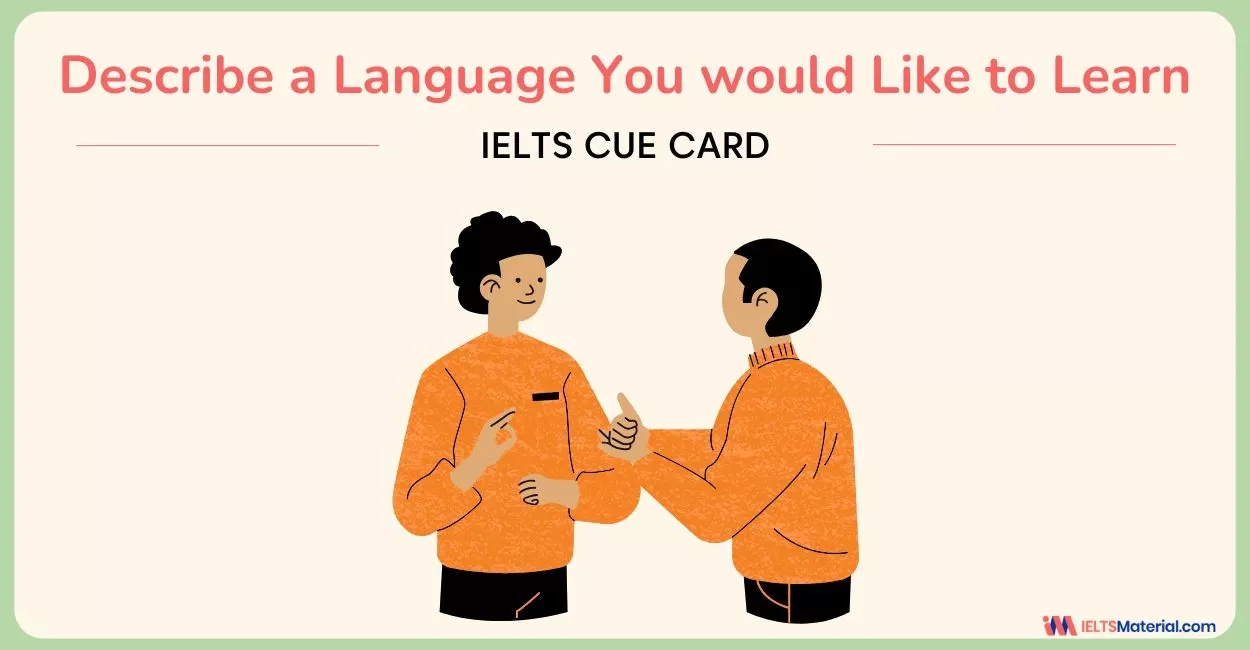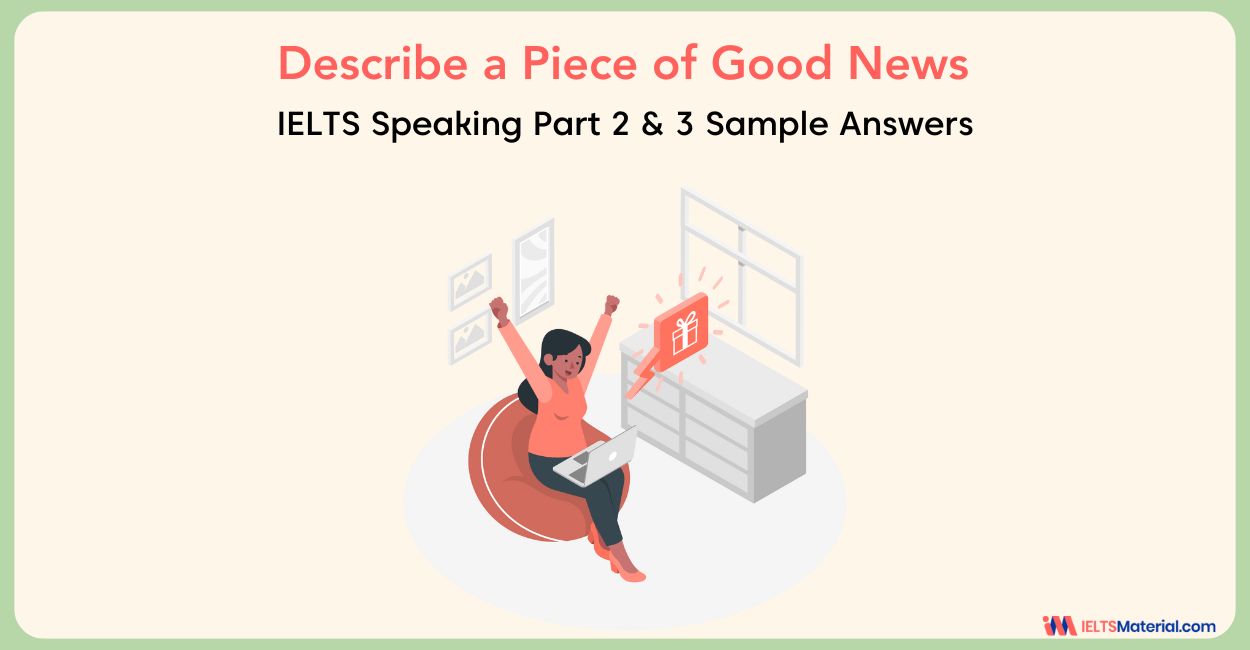Describe a Skill You Need Long Time to Learn: IELTS Speaking Part 2 Sample Answer
4 min read
Updated On
-
Copy link
Get set to read the 2 sample answers for the ‘Describe a Skill You Need Long Time to Learn - IELTS Speaking Cue Card’ along with its follow-up questions written by our band 9 expert trainers for enhanced preparation!
Table of Contents

Limited-Time Offer : Access a FREE 10-Day IELTS Study Plan!
"Describe a Skill You Need Long Time to Learn - IELTS Speaking Cue Card" is a topic in which you can talk about a skill that you took a long duration to learn and master! However, it can be difficult to share those experiences fluently during the IELTS Speaking exam.
Therefore, practising topics related to skills, like ‘Describe a Skill You Need Long Time to Learn’ is a must for IELTS Speaking Part 2 preparation. Read our expert-written answers for enhanced preparation now!
Describe a Skill You Need Long Time to Learn.
You should say:
- What it is?
- Where you can learn it?
- How to learn it?
- Explain why you need long time to learn it
Describe a Skill You Need Long Time to Learn: IELTS Speaking Part 2 Sample Audio
Describe a Skill You Need Long Time to Learn: IELTS Speaking Part 2 Sample Answer 1
- What it is?
I am an inquisitive person. I am always eager to gain knowledge, whether practically or through books. The source doesn’t matter. For a long time now, I have been getting more inclined toward learning a computer programming language – Hypertext Markup Language (HTML), to be precise.
- Where you can learn it?
To learn this skill thoroughly, I have two distinct ways in front of me. I can either join an offline class or enrol in an online class. While both of them have their own pros and cons, I am swaying towards the online option a tad more than the other. Being a student, my entire day is going into school and extra tuition. At the end of the day, I get completely burnt out. Thus, I believe taking online classes would be more flexible and convenient for me.
- How to learn it?
Considering how tricky these computer languages can be, I would need a one-to-one session with a professional who has acquired an adequate amount of experience and skills in this field. This way, I would get to learn efficiently and get my issues resolved promptly as well.
- Explain why you need long time to learn it
Computer programming languages are complex and profound. They require a lot of patience and open-mindedness to learn. Hence, they take a lot of time. Also, there are a lot of languages that are connected to one another. Therefore, I don’t think I would stop at one and will continue learning more languages. So, it may take months and years altogether before I master anything.
Describe a Skill You Need Long Time to Learn: IELTS Speaking Part 2 Sample Answer 2
- What it is?
I would like to talk about learning a language, a skill that definitely requires a lot of time and patience. Many people go into learning a language expecting to speak fluently after a few short months, which can lead them to disappointment. I think to truly be fluent in a language, you need at least 3 years, preferably living and immersing yourself in that country. Language starts with the grammar and sentence structure, then being able to listen and respond, then onto reading and writing which is a whole different ball game (a different challenge). Even those who can communicate effectively would still struggle to read a novel or literature in that language.
- Where you can learn it?
You can begin to learn a language in various ways. For one, you can learn it in school and a language center, which is a good base for grammar especially. Secondly, you can study it on your own, maybe even by watching youtube videos, series/ movies, listening to music, etc. which is becoming more of a trend nowadays due to the high costs of studying at a language center.
- How to learn it?
Moreover, you can learn it by starting a relationship with someone and figuring out a way to communicate after some time – I think it usually happens fast when you catch feelings (to start feeling emotions for someone) for someone who doesn’t speak the same language! Lastly, you can move to that country and pick it up there. I would say this is the best way, although many don’t have this opportunity.
- Explain why you need long time to learn it
I think language learning is a tedious (long, detailed) process because it involves many different skills, such as memorization, pronunciation, grammar, etc., and requires you to think outside of the box, which doesn’t come easily for some. Moreover, I think it takes your brain a long time to accept another language when you’ve spent your whole life making memories in one. All in all, it is no easy task.
Do you find it difficult to speak using cue cards like this?
Book a FREE Demo to practise for IELTS by speaking with experts!
Vocabulary
- Fluent: able to express oneself easily and articulately
Eg: Rose speaks French fluently. - Disappointment: sadness or displeasure caused by the non-fulfilment of one’s hopes or expectations.
Eg: To our disappointment, the power never came back. - Whole different ball game: a different challenge
Eg: Working as HR manager was a whole different ball game to John. - Figuring out: solve a problem or discover the answer to a question
Eg: Rose figured out a solution to talk to her parents. - Catch feelings: to start feeling emotions for someone
Eg: She caught feelings for her best friend. - Tedious: long and detailed
Eg: She described her tedious journey.
Maximize Your Speaking Skills with IELTSMaterial
The qualities of an effective speaker extend beyond fluency and confidence to include concise expression of ideas, varied language use, and correct IELTS grammar. Mastering these skills solely through practice with IELTS Speaking practice tests can be challenging. Also, you can join our free webinars for valuable tips to elevate your IELTS Speaking preparation!
See also:

Start Preparing for IELTS: Get Your 10-Day Study Plan Today!
Explore other Speaking Part 2 Topics


Kasturika Samanta

Kasturika Samanta
Recent Articles



Kasturika Samanta

Kasturika Samanta





Post your Comments